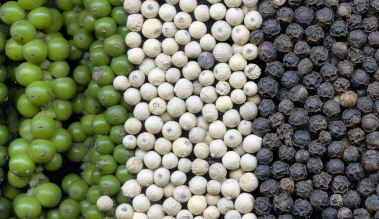 Constipation is a common problem. It is related to an imbalance in Vata dosha, and its subdosha, Apana Vata. Apana is downward moving and governs elimination and menses. An imbalance in apana vata can cause dryness and sluggishness of bowel functioning.
Constipation is a common problem. It is related to an imbalance in Vata dosha, and its subdosha, Apana Vata. Apana is downward moving and governs elimination and menses. An imbalance in apana vata can cause dryness and sluggishness of bowel functioning.
If you are Vata in nature, you may be more susceptible to constipation. Because Vata increases in the body after the age of 60, constipation is more common among older people.
If you have a tendency towards constipation, you want to avoid the following factors, which aggravate Apana Vata:
AVOID
Lack of exercise
Not drinking enough fluids
Dry, rough foods
Stress (a major cause of vata imbalance)
Multi-tasking
Eating heavy meals at night
Here are some general recommendations to avoid constipation:
DO
Go to bed early (before 10:00 pm) and rise early (before 6:00)
Drink plenty of fluids. Warm fluids are ideal. The general rule is to drink half your body weight in ounces each day. Drinking two glasses of warm water when you wake up can help stimulate bowl functioning. Hot water with black salt is sometimes recommended.
Eat fresh fruit juices are also helpful.
Eat cooked apples for breakfast. Try soaking raisins over night. Enjoy both the “raisin water” and the plump raisins in the morning.
Be sure to sit for 10 minutes after finishing a meal to support the digestive process.
Eat your main meal at noon.
Try to get in at least a half hour walk every day. Taking a walk after lunch (after first sitting for 10 minutes when your meal is finished) is ideal.
Gentle stretching exercise such as Yoga asanas and Sun Salutations help pacify Vata dosha and the twisting motions can massage the digestive organs and increase oxygen delivery and blood flow. Regular yoga can be very helpful in having more regular bowel activity.
Look to your diet—are you getting plenty of fiber? Vegetables, fruits and whole grains are high in fiber. Cheese, eggs, meat, packaged foods and overly refined foods can lead to constipation. Cold foods and drinks will interfere with digestion, leading to the build up of ama and causing constipation. Get to know which foods are vata aggravating and avoid them.
Warm oil massages in the morning before your bath or shower can help pacify Vata dosha.
Traveling can aggravate Vata, causing constipation. Eating lightly, drinking plenty of water, a warm oil massage and taking Maharishi Ayurveda Products Digest Tone or triphala with warm water will help keep Vata in line when traveling.
If you have chronic constipation, you probably have compromised a digestion. If home remedies are not helping, consider that it is time for Panchakarma, the Ayurveda series of detoxification treatments.
While the body has its own brilliant systems for the elimination of impurities, with chronic constipation the body can’t keep pace with the rate in which toxins (ama) build up in the tissues, cells and joints. According to Ayurveda, toxins or ama clog the system and form a breeding ground for disease. A 3 to 7-day cleansing program can start to remove the build-up of ama and restart your digestive process.
For more information on Ayurveda detox or cleansing programs, visit The Raj Ayurveda Health Spa:
( Picture of woman holding stomach. Source: Google Advance Image Search.
Creative Commons. The image is used under the terms of Googles Creative Commons rules:http://creativecommons.org/licenses/by/2.0/deed.en. This photograph and credit do not constitute an endorsement of this blog or products mentioned.)



